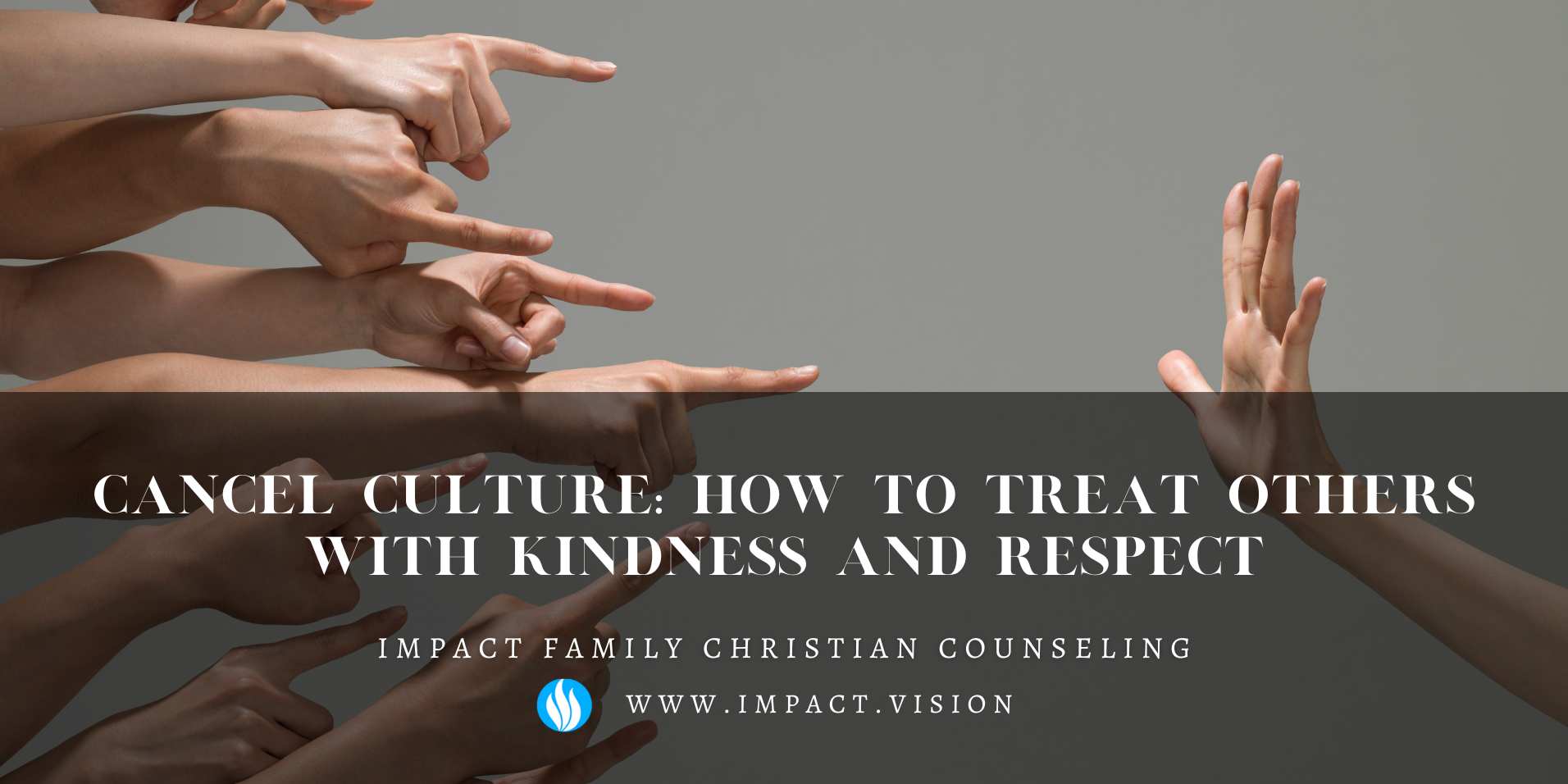Nowadays, it’s easy to feel like everyone is walking on eggshells, afraid to say or do something that might offend others. This phenomenon, known as cancel culture, has become increasingly prevalent in recent years, fueled partly by a growing mob mentality on social media. While there are certainly times when it’s necessary to hold people accountable for their actions, cancel culture can also create an environment of fear and hostility, where people are afraid to speak their minds or engage in healthy debate.
Cancel culture is the act of publicly calling out individuals or entities for their behavior or beliefs, often resulting in social and economic consequences. While some argue that cancel culture is a way to hold people accountable for their actions, others view it as a form of bullying and censorship. Regardless of where you stand on the issue, as Christians, we must consider how our faith calls us to respond to cancel culture.
The Power of Speech in Cancel Culture
One of the important aspects of cancel culture is how people use speech. Proverbs 18:21 says, “The tongue has the power of life and death, and those who love it will eat its fruit.” This verse emphasizes the significance of being mindful of our speech and how it has the power to either build up or tear down, bring life or death.
In a recent YouTube video from Dr. Tony Evans’ channel, he emphasizes the importance of guarding our tongues and using our words to honor God and bring blessings to others. He says, “Make God happy in your speech.”
Dr. Evans’ insights are especially relevant in this culture, where words can be used as weapons to tear others down. Instead, as Christians, we’re called to use our speech to bring healing and hope. This means speaking words that encourage and uplift, even in the midst of disagreements.
The Christian Golden Rule
The Christian Golden Rule is rooted in Jesus’ teachings in Matthew 7:12: “So in everything, do to others what you would have them do to you.” This principle is the foundation of the Christian faith and is commonly found in other religions and philosophies. Its relevance to cancel culture lies in its emphasis on treating others with kindness and respect, even when we disagree.

In cancel culture, getting caught up in the desire to call out and condemn others for their actions or beliefs is easy. However, as Christians, we’re called to respond differently. We’re called to approach others with love and understanding, even when it’s difficult. This doesn’t mean that we shouldn’t hold people accountable for their actions, but it does mean that we should do so with compassion and empathy.
Biblical Examples of the Golden Rule in Action
The Bible is full of examples of the Golden Rule in action. One of the most well-known examples is the story of the Good Samaritan in Luke 10:25-37. In this story, a man is beaten and left dead on the side of the road. Several people pass by him, including a priest and a Levite, but they don’t stop to help. Finally, a Samaritan comes along and takes care of the man, even though Samaritans were typically viewed as enemies by the Jews.
This story is a powerful example of the Golden Rule in action. The Samaritan didn’t stop to consider whether the man was his friend or his enemy; he saw someone in need and helped him. This is the kind of attitude that we need to adopt in cancel culture. Instead of focusing on our differences, we must focus on our shared humanity and treat others with kindness and respect.
Here are some more examples to help illustrate the importance of the Christian Golden Rule in the context of cancel culture:
- Consider a scenario where someone makes a mistake or says something offensive. Instead of immediately calling for them to be canceled or shamed publicly, you reach out to them privately and offer support and guidance. This can help them learn from their mistakes and grow as a person rather than feeling attacked and defensive.
- Imagine you share an opinion on social media, and it receives backlash from others who strongly disagree with you. Instead of attacking them in return, you take a moment to understand where they’re coming from and respond with kindness and respect. This can lead to a productive conversation and a better understanding of each other’s perspectives.
- Consider a situation where someone has been canceled or ostracized from a community. Instead of following the mob mentality and joining in the condemnation, you choose to approach them with empathy and try to understand their perspective. This can lead to healing and reconciliation rather than further division and hostility.
Treat others with kindness and respect.
Practicing the Christian Golden Rule in today’s culture requires a conscious effort to approach others with love and understanding. Here are some practical tips for applying the Golden Rule in conversations and interactions:
Listen actively
In cancel culture, it’s all too easy to immediately jump in with your opinion and condemn someone for their views or actions. However, taking the time to listen to what the other person is saying can make a big difference. Instead of being quick to judge, active listening shows that you value their perspective and are willing to engage in a meaningful conversation.
Suppose a celebrity makes a controversial statement that offends many people. Instead of immediately jumping on social media to condemn them, take the time to listen to what they have to say and seek to understand their perspective. Respond with kindness and empathy, recognizing that everyone is capable of making mistakes. By responding in this way, we can foster a more inclusive and tolerant culture, even in the midst of cancel culture.
Seek to understand
Try to understand where the other person is coming from, even if you disagree. This doesn’t mean you have to change your opinion, but it does mean that you should approach the conversation with an open mind.
In the context of cancel culture, seeking to understand is especially important when engaging with people who have made mistakes or have been accused of wrongdoing.
For instance, if someone has been called out for making a controversial statement, instead of immediately jumping to condemn them, try to understand the context in which the statement was made and the intentions behind it. This doesn’t mean excusing problematic behavior but approaching the situation with an open mind and a willingness to have a meaningful conversation.
Respond with kindness
When responding to others, especially in the context of cancel culture, it’s important to choose your words carefully and respond with kindness. Even if you strongly disagree with someone’s opinion or actions, you can still treat them with respect.

Choose forgiveness
When someone makes a mistake or says something that you disagree with, be willing to forgive them and extend grace.
Cancel culture has made it increasingly difficult for people to admit their mistakes and seek forgiveness, as the fear of being canceled or ostracized can be overwhelming.
However, choosing forgiveness can be a powerful way to combat this toxic environment.
For example, if someone has made a mistake or said something offensive, consider extending grace and offering them a chance to learn and grow instead of immediately condemning them and cutting them off. This doesn’t mean excusing problematic behavior or ignoring the harm caused. Still, it does mean approaching the situation with empathy and a willingness to work toward reconciliation.
Seek help from a counselor
If you’re struggling to navigate cancel culture and maintain healthy relationships, don’t hesitate to seek help from experienced counselors. They can provide guidance and support to help you approach difficult conversations with love and understanding.
Remember, practicing the Christian Golden Rule isn’t always easy, but it’s essential for building strong, healthy relationships with those around us.


